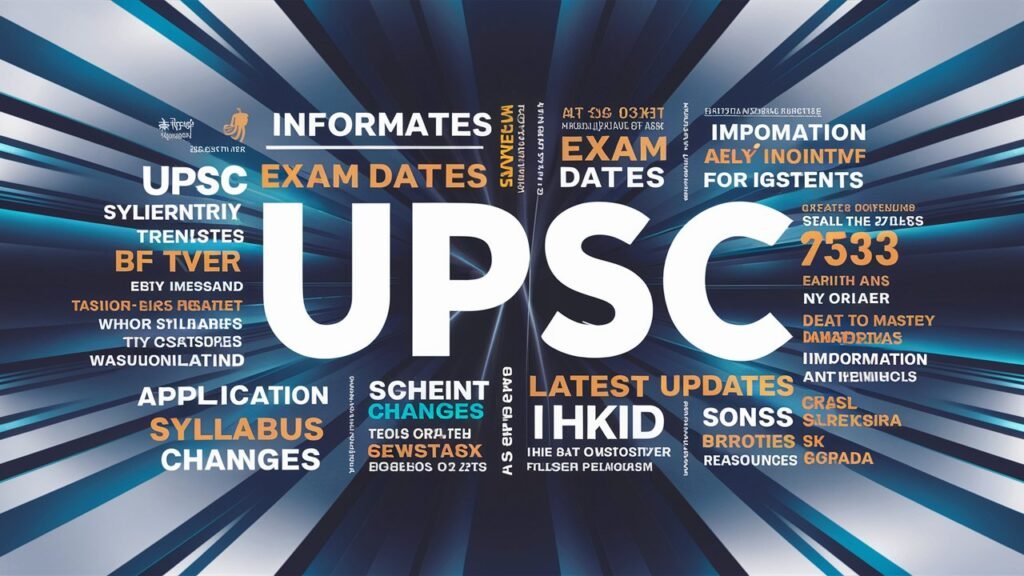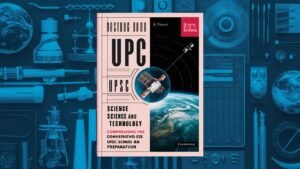
Preparing for the UPSC Exam can be a daunting task. From understanding the vast syllabus to keeping abreast of current affairs, aspirants need to stay updated with the latest information. This article aims to provide a comprehensive guide to help you stay informed about all the latest updates on and about the UPSC Exam. For more detailed insights on enhancing your general knowledge and current affairs, visit our blog on how to improve GK and current affairs.
What is the UPSC Exam?
The Union Public Service Commission (UPSC) Exam is one of the most prestigious and challenging competitive exams in India. It is conducted annually to select candidates for various civil services positions, including the Indian Administrative Service (IAS), Indian Foreign Service (IFS), and Indian Police Service (IPS). The exam is divided into three stages: Preliminary Examination, Main Examination, and Personality Test (Interview).
UPSC Exam Pattern
| Exam Stage | Description | Duration |
|---|---|---|
| Preliminary | Objective type questions; two papers – General Studies and CSAT | 2 hours each |
| Main Examination | Descriptive type questions; nine papers including compulsory and optional subjects | 3 hours per paper |
| Personality Test | Interview to assess the candidate’s personality and suitability for a career in civil services | – |
For an in-depth understanding of the UPSC exam pattern, you can explore our blog on the full form of LOL in general knowledge.
Key Updates on the UPSC Exam
Staying updated with the latest changes and notifications regarding the UPSC exam is crucial for aspirants. Here are some recent updates:
1. Changes in Syllabus
The UPSC periodically updates its syllabus to reflect current trends and needs. Recently, there have been changes in the emphasis on Environmental Science, International Relations, and Current Affairs. Understanding these changes can give you a competitive edge.
2. Examination Dates
The UPSC Preliminary Examination is usually held in June, while the Main Examination takes place in September. However, it is essential to check the official UPSC website or reliable sources for any changes in the schedule. For regular updates, check our post on staying informed with daily current affairs.
3. Eligibility Criteria
Changes in eligibility criteria, such as age limits, number of attempts, and educational qualifications, are also critical updates to watch for. Ensure you meet the latest criteria before applying.
Preparing for Current Affairs
Current affairs play a significant role in the UPSC exam. Both the Preliminary and Main examinations include questions related to national and international current events. Here are some tips to stay updated:
1. Reading Newspapers
Daily reading of reputable newspapers like The Hindu, Indian Express, and Business Standard can help you stay informed about important events and issues. Focus on editorials and opinion pieces for a deeper understanding.
2. Online Resources
Several online platforms provide comprehensive coverage of current affairs. Websites like PRS Legislative Research, IDSA, and our very own daily current affairs resources are excellent for staying updated.
3. Monthly Magazines
Subscribing to monthly magazines like Yojana, Kurukshetra, and Economic and Political Weekly can be beneficial. These magazines provide in-depth analysis of various topics relevant to the UPSC exam.
Read Also:
Strategies for UPSC Exam Preparation
A strategic approach is vital for success in the UPSC exam. Here are some proven strategies:
1. Time Management
Effective time management is crucial for covering the vast syllabus. Create a study schedule that allocates sufficient time for each subject, including regular revisions and mock tests.
2. Practice Previous Years’ Papers
Solving previous years’ question papers can give you an idea of the exam pattern and the types of questions asked. It also helps in time management and identifying important topics.
3. Mock Tests
Taking regular mock tests can help in self-assessment. It enables you to identify your strengths and weaknesses and work on them accordingly.
4. Joining Coaching Institutes
While self-study is essential, joining a reputable coaching institute can provide guidance and structured preparation. Institutes like Vajiram and Ravi, Vision IAS, and ALS IAS Academy are popular choices.
Read Also:
Subject-Wise Preparation Tips
Each subject in the UPSC syllabus requires a unique approach. Here are some tips for key subjects:
1. General Studies
General Studies is divided into four papers in the Main examination. It includes topics like Indian Polity, Geography, History, Economy, and Environment.
Indian Polity
Focus on the Constitution of India, Parliamentary System, and Judiciary. Books like ‘Indian Polity’ by M. Laxmikanth are recommended.
Geography
Study physical geography, human geography, and economic geography. NCERT books from Class 6 to 12 are good starting points.
History
Cover ancient, medieval, and modern Indian history. Books like ‘India’s Struggle for Independence’ by Bipan Chandra are useful.
2. Optional Subjects
Choosing the right optional subject can significantly impact your score. Select a subject you are passionate about and have a good understanding of. Popular optional subjects include Public Administration, Geography, History, and Sociology.
3. Essay Paper
The essay paper requires you to write two essays. Practice writing essays on diverse topics, focusing on structure, coherence, and presentation. Reading editorials and opinion pieces can help improve your essay writing skills.
Read Also:
Personality Test (Interview)
The final stage of the UPSC exam is the Personality Test or interview. It assesses your personality, communication skills, and overall suitability for a career in civil services. Here are some tips to prepare:
1. Know Your DAF (Detailed Application Form)
Your DAF is the basis of the interview. Be thoroughly prepared with every detail mentioned in it, including your hobbies, achievements, and personal background.
2. Current Affairs Knowledge
Stay updated with current affairs, especially topics related to your home state, optional subject, and recent national and international events.
3. Mock Interviews
Participate in mock interviews conducted by coaching institutes or mentors. It helps in building confidence and improving your communication skills.
Final Thoughts
Preparing for the UPSC exam requires dedication, perseverance, and a well-rounded strategy. Staying updated with the latest information and regularly revising the syllabus is crucial. Make use of reliable resources and keep practicing to improve your chances of success. For more tips on preparing for the UPSC exam, visit our comprehensive guide on current affairs for 2024.
Read Also:
- How to Improve GK and Current Affairs
- What is the Full Form of LOL in General Knowledge
- Latest Daily Current Affairs Comprehensive Resources
- Current Affairs 2024 PDF: Your Ultimate Guide to Staying Informed
By following these tips and staying diligent in your preparation, you can achieve success in the UPSC exam. Remember, consistent effort and a positive mindset are key to cracking this prestigious exam. Good luck!

